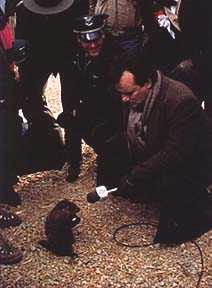
The very lovely Bronwyn Lloyd and I have started a small press together. It's called Pania Press, and will specialise in small limited editions of original texts by local poets and artists, with individual handcrafted covers.
The first three books (slated to go on sale next year) are:
1/ Jack Ross, Love in Wartime
(a sequence of poems with illustrations and accompanying texts)
2/ Therese Lloyd, many things happened
(a debut poetry collection from this promising young writer, who recently completed her Masters in Creative Writing at Victoria University's International Institute of Modern Letters)
3/ Michele Leggott, hello and goodbye
(a new sequence of poems by one of New Zealand's brightest poetic luminaries)
Future titles will be announced as they become available, but the point of this post is just to direct you to the Pania Press blogsite we've set up to advertise (and sell!) our wares. Get in quick -- there won't be many copies of each one to go around ...


